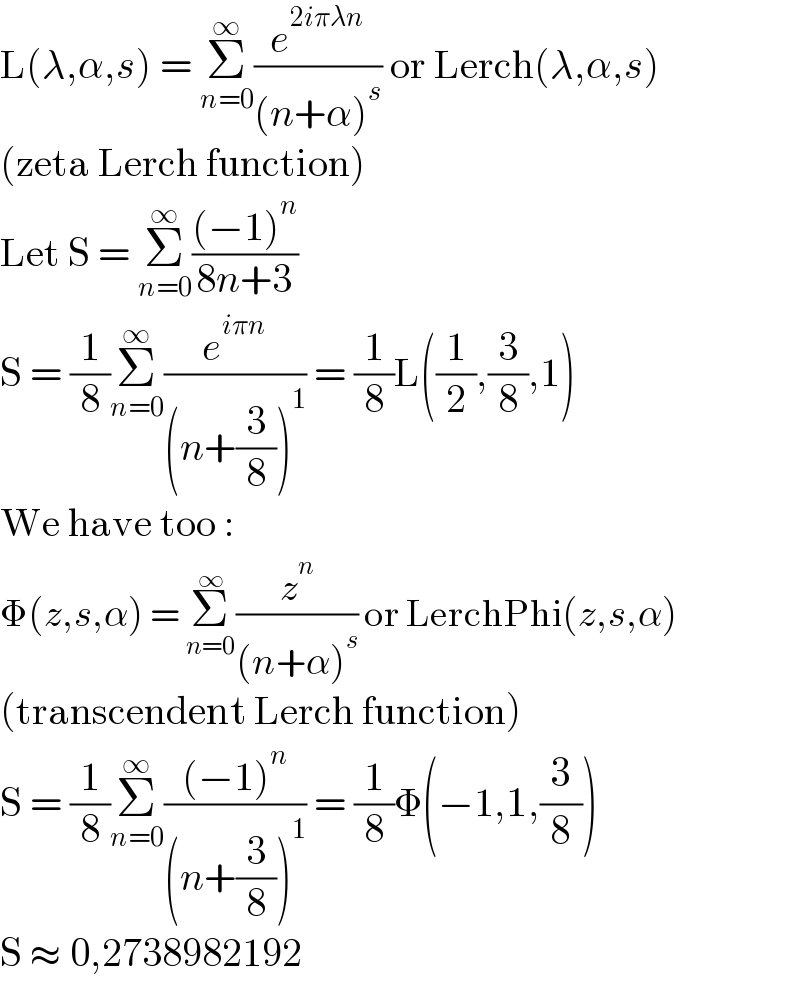
Question and Answers Forum
Question Number 128048 by bramlexs22 last updated on 04/Jan/21

Answered by Olaf last updated on 04/Jan/21

Commented by bramlexs22 last updated on 04/Jan/21
I just found out about the lerch zeta function
Commented by bramlexs22 last updated on 04/Jan/21

Commented by Olaf last updated on 04/Jan/21

Commented by bramlexs22 last updated on 04/Jan/21

Answered by mindispower last updated on 04/Jan/21

Answered by Dwaipayan Shikari last updated on 04/Jan/21

